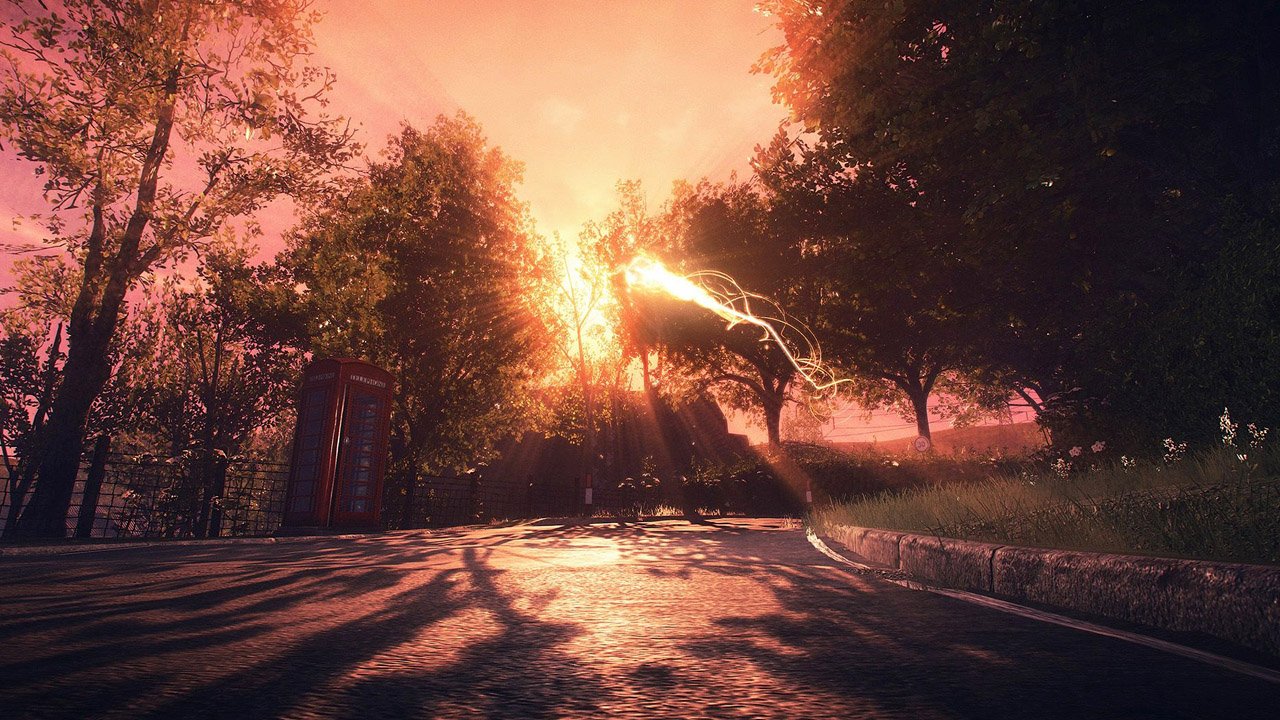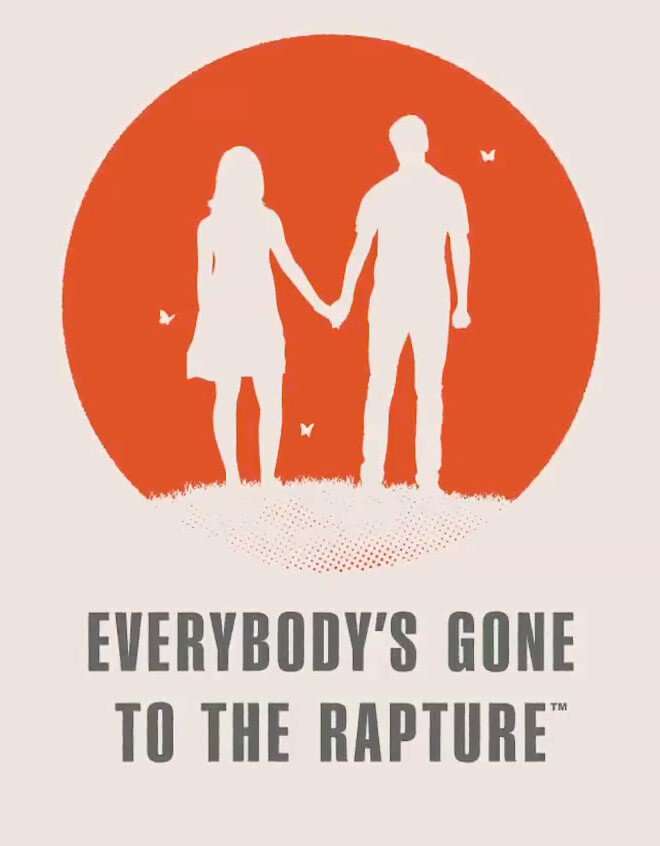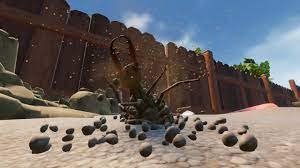Boiled down to its essence, Everybody’s Gone to the Rapture is a game about taking a walk through the countryside. What makes The Chinese Room’s latest title special, though, is how carefully it manages to blend the simple pleasure of an idle stroll with the deeper satisfaction of following a well-told and deeply affecting story.
The audience is given few hints as to what is happening as they begin to work their way through the fictional village of Yaughton (located within the real-world county of Shropshire, England) and its surrounding farms, hills, and campgrounds. It’s the early summer of 1984; the player controls an unnamed, non-speaking protagonist; and nobody is around. From this basic premise, Rapture expands ever outward in the fashion of any good mystery. The initial confusion of its introduction is eroded as the player sets off, the game providing narrative context in the form of short conversations between now-vanished townspeople, their bodies minimally rendered in lines of bright yellow light.
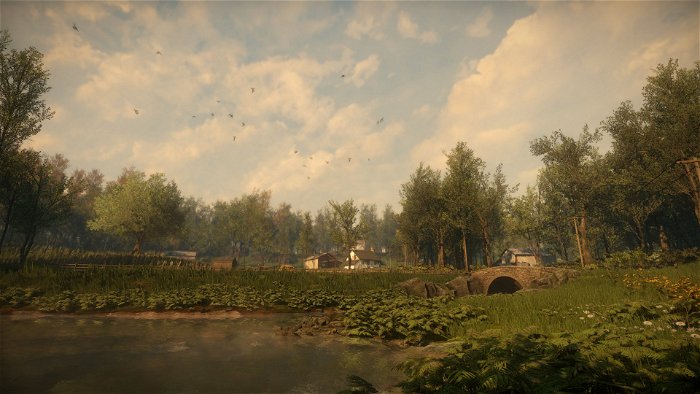
There are layers to this process of discovery. On a grand scale, the audience is spurred onward by a desire to figure out what exactly has caused the population of a town to simply disappear without a trace. On a more immediate level, there’s a curiosity to learn about Rapture’s cast of characters as they’re introduced via context-free dialogue—to determine their personalities, relationships, and roles in the small English community. As new ghostly scenes are uncovered, the pieces begin to fall into place and a walk about town turns into a compelling discussion on love, loss, and the uniquely human ability to weather unthinkable catastrophe.
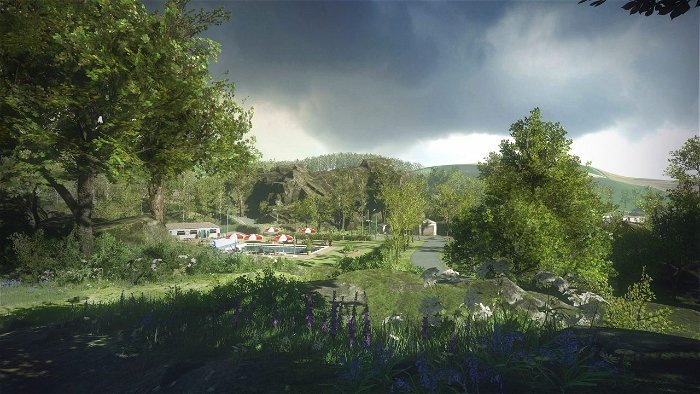
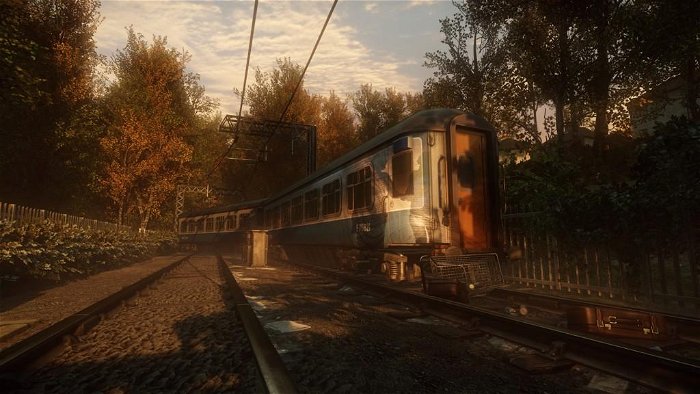
Some of Rapture’s dialogue veers a bit too close to sci-fi pulp, but for the most part the game’s writing is sharp and delivered by fittingly natural-sounding voice actors. It’s all slightly reminiscent of a radio drama, the most explicitly told parts of the story presented primarily through conversation. Still, the sights and sounds of the game are no less important in establishing Rapture’s mood and sense of place. The score—an assortment of achingly beautiful music that alternates the intimacy of solo pianos, strings, and vocals with the dramatic power of full orchestras and choirs—works in concert with the ever-changing landscape to lend greater emotional weight to the plot. The player’s movement, not just through new areas of the town, but also between weather conditions like calming sunshine, premonitory grey clouds, and melancholic sunsets, works wonderfully to underscore the story’s progression.
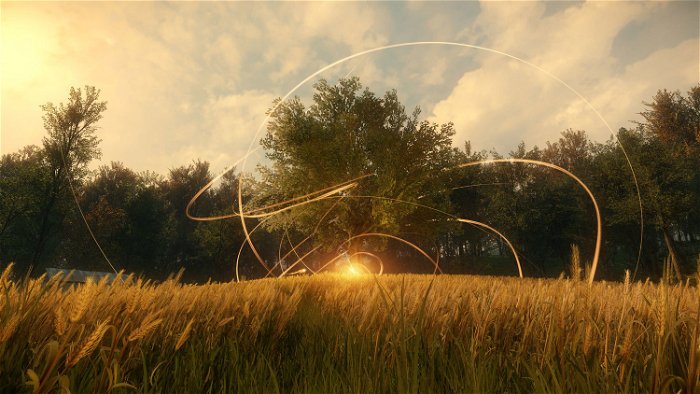
The only constant is the eerie undercurrent running throughout the game. As idyllic as the first few chapters’ blue skies and rolling green hills initially seem, the abandoned environment remains appropriately disquieting even there. Sometimes this is represented outright, the player coming across quarantine warning signs, bloody tissues, or dead birds. At others, a sense of dread is established more subtly, creeping in through little visual cues like neglected, overgrown lawns, front doors left slightly ajar, and picnic tables set for a meal that never took place.
As the plot unfolds, the player drawing connections between the various characters and the events that transpired before the game’s beginning, the reason for the prevailing uneasy tone becomes clearer and clearer. Without describing specifics, it’s enough to say that Rapture’s version of our world has been fundamentally changed—that there will be no going back from the mysterious calamity that occurred before the game’s opening.
What the developer accomplishes with the well-worn post-apocalyptic genre is remarkable. There’s no shortage of games that take place in the wreckage of the world’s end, but Rapture is the rare title that seeks to relate this setting, very directly, to our own recent history as a people. The ultimate effect is a redefining of the lofty, numinous elements of spirituality within the context of humanity. If The Chinese Room’s previous games—Dear Esther and Amnesia: A Machine for Pigs—were melancholy or outright horrific reflections on our species, Rapture is the opposite. It’s a story that shows that, even when faced with unimaginable circumstances, we’re capable of tremendous good.
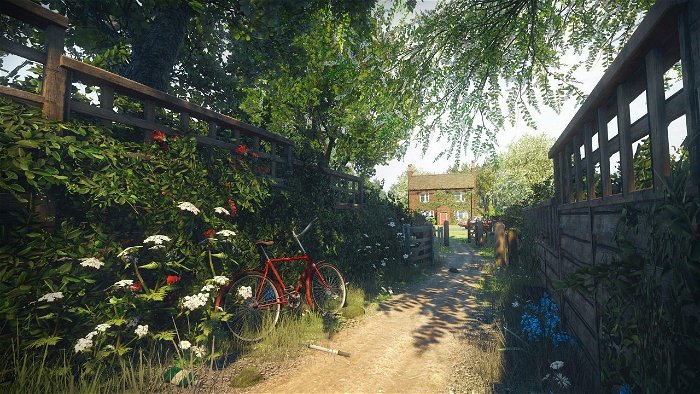
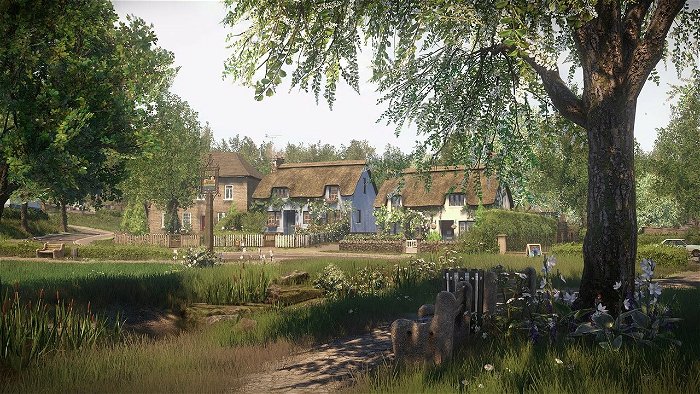
None of this is established with clumsy exposition, but rather implied through confidently directed dialogue, visuals, and music. Despite Everybody’s Gone to the Rapture’s high dramatic stakes, it’s also a game that conveys its story in a manner grounded enough that even its most impactful messages feel like a natural extension of a very peculiar—and very memorable—summer’s day walk.
